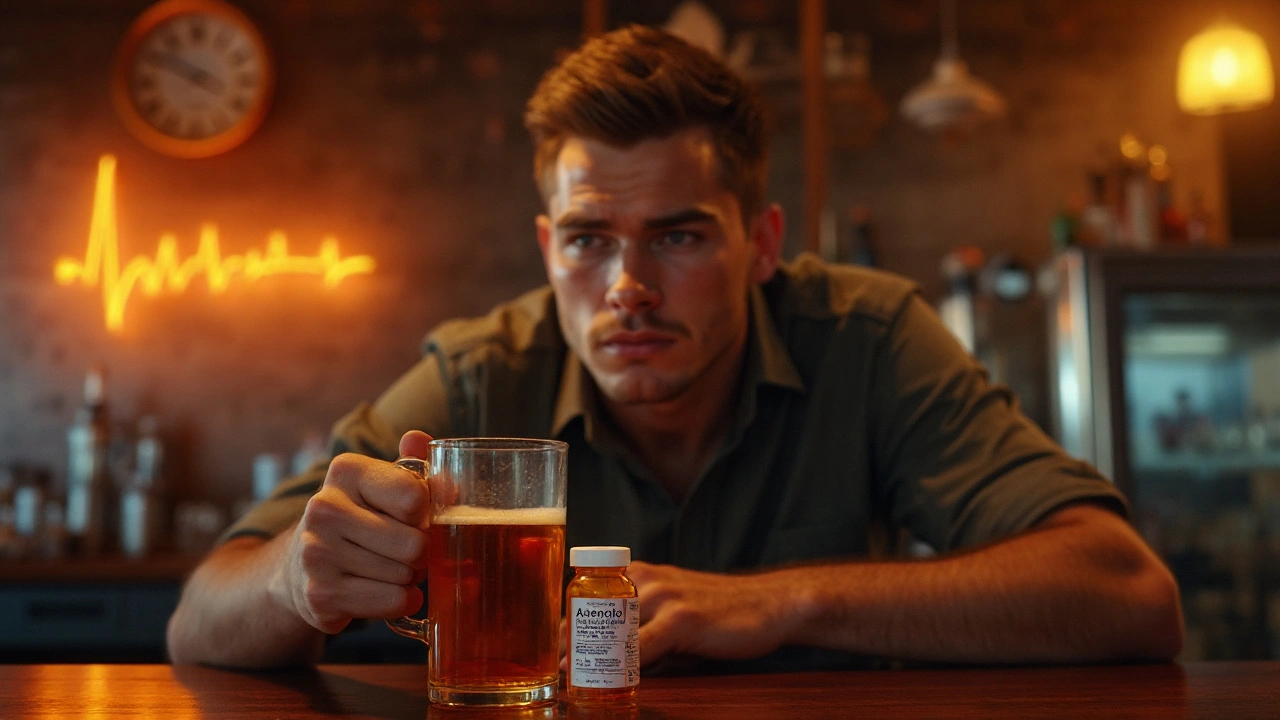Heart Medication and Alcohol: Quick Facts and Practical Tips
If you take medicine for your heart, you’ve probably wondered whether it’s safe to have a drink. The short answer: it depends on the drug, the amount, and your overall health. This guide breaks down the biggest risks, points out which pills you should watch, and shows you how to enjoy a night out without hurting your heart.
Why Alcohol Matters for Heart Pills
Alcohol isn’t just empty calories; it can change how your body absorbs, breaks down, and reacts to medication. For heart drugs, that can mean weaker protection, stronger side effects, or dangerous spikes in blood pressure. Even a single glass can tip the balance if the drug has a narrow safety window.
Common Heart Meds and Their Alcohol Rules
Statins (e.g., Lipitor, Crestor): These lower cholesterol. A drink or two usually isn’t a disaster, but heavy drinking can raise liver enzymes and increase muscle pain risk. If you notice unexplained soreness, skip the booze.
Beta‑blockers (e.g., Atenolol, Metoprolol): They calm your heart rate. Alcohol also lowers blood pressure, so together they can make you feel dizzy or faint. Keep it to one drink and watch for light‑headedness.
ACE inhibitors (e.g., Lisinopril, Enalapril): Mixing with alcohol can cause a sudden drop in blood pressure, especially when you stand up. You might feel a wobble—better to avoid binge drinking.
Blood thinners (e.g., Warfarin, Apixaban): Alcohol can boost bleeding risk. Even moderate drinking can push your INR (blood clot test) too high. Talk to your doctor about a safe limit, often zero or a single low‑alcohol beverage.
Diuretics (e.g., Hydrochlorothiazide): These drain extra fluid. Alcohol does the same, which can lead to dehydration, low potassium, and a racing heartbeat. Pairing them isn’t a good idea.
How to Stay Safe While Drinking
1. Know your meds – read the label or ask your pharmacist if alcohol is a red flag.
2. Set a limit – most doctors suggest no more than one standard drink per day for men and women on heart meds.
3. Stay hydrated – drink water between alcoholic drinks to keep blood pressure steady.
4. Never mix on an empty stomach – food slows alcohol absorption and reduces sudden drops in pressure.
5. Monitor how you feel – if you notice dizziness, rapid heartbeat, or unusual bruising, stop drinking and call your doctor.
When to Say No
If you’re on warfarin, high‑dose statins, or any drug that already causes liver stress, it’s safest to skip alcohol altogether. Same goes for anyone with a history of arrhythmia or uncontrolled hypertension – the added strain from alcohol can trigger serious events.
Remember, occasional light drinking isn’t automatically dangerous, but consistency matters. One weekend of heavy partying can undo weeks of good blood work.
Bottom line: check each prescription, keep your drinks moderate, and always have a backup plan if you start feeling off. Your heart will thank you, and you’ll still get to enjoy a glass of wine or a cold beer without risking your health.
Atenolol and Alcohol: Risks, Symptoms, and Safe Guidelines
Learn why mixing atenolol with alcohol can be hazardous, what symptoms to watch for, and how to stay safe while on this heart medication.
Learn more...